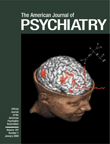Treatment of substance abuse disorders is a broad and complex field. The task of a primer on this subject is daunting because it must distill varied approaches, used by a wide array of therapists, into a form comprehensible to neophytes in this area. This book’s dust jacket promises that “this encyclopedic primer, written in easy question-and-answer format, contains everything a clinician needs to know about substance abuse and addiction. Dr. Levin…covers the full complexity of substance abuse diagnoses and treatment with a biopsychosocial approach and multimodal interventions.” The book’s reality falls short of its promises.
The volume is divided into sections covering definition and consequences of substance abuse, theories of addiction, and treatment techniques. In each section questions are presented that are then answered in 1–4 pages. The questions are often odd, for example, “Do porcupines drink?” (the answer refers to the social behavior of alcoholics), “What does Aristotle teach us about addiction and its treatment?” (that humans have an innate drive for knowledge and thus educational programs for alcoholics are of value), “What does the horse have to do with substance abuse treatment?” (which refers to a horse in a Chekhov play that Levin uses to explain the benefits of active listening by therapists). The question format, as used in this text, is a distraction from an otherwise lucidly written, well-organized book.
Although the volume’s 278 pages are clearly written and easily understood, its narrow focus becomes apparent in the first sentence of the introduction: “Substance abuse treatment is both the same as, and different from, other psychotherapies.” The narrowing of the focus of treatment to psychotherapies becomes narrower still when 25% of the book is given over to a section entitled Psychodynamic Theories of Addiction, with additional pages devoted to psychoanalytic treatment in the section on Treatment Techniques in Substance Abuse Therapy. The author makes it clear that he is a psychodynamic psychologist adhering most closely to the theories of Heinz Kohut. His description of the theories and approaches of more than a dozen psychoanalysts, including Kohut, are pithy, illuminating, and clear. He also reviews nonanalytic psychotherapy but with much less enthusiasm and coherence.
Congruent with Levin’s narrow emphasis on analytic psychotherapies, he has virtually no discussion of drugs other than alcohol and none of the medical effects of any type of substance abuse, and he has only limited discussion of the devastating social impact of substance abuse, which he confines mainly to well-written case reports of his mostly middle-class to upper-class patients.
He expresses a casual if not hostile attitude toward psychopharmacological approaches to treatment, which he covers in a widely scattered five pages. A similar number of pages is given to neurobiofeedback, hypnosis, and acupuncture, which he appears to support somewhat more enthusiastically than medication, “since it [acupuncture] is one of those treatments that seem to do no harm, there is no reason not to refer substance abuse patients for acupuncture or, if the therapist is so inclined, to receive training in performing acupuncture.”
The author does not demonstrate an interest in reporting or referring to data supporting the many statements and therapeutic suggestions he makes, such as, “The masturbatory nature of addiction is often recognized by patients and can sometimes be usefully interpreted,” “Borderlines and narcissists do indeed make up much of the addictive population,” and “Pathological narcissism…plays a powerful role in the etiology of many addictions.” His rare allusions to research data are sometimes flippant and dismissive and occasionally wrong: “If the rats are then put on Prozac, they do indeed lose their appetite for alcohol. So the scientifically best-supported conclusion about the serotonin-deficiency hypothesis of the etiology of alcoholism is that alcoholic rodents do well on SSRIs.”
This lack of attention to scientifically established evidence is pervasive in much of the addiction field. One of the few established facts in addiction is that therapy works better than doing nothing for a substantial number of substance abusers, but it does not seem to matter what that therapy is. It is crucial that the field establish which elements of therapy work and why. In the meantime, those new to the field or wishing to learn about it should be given a panoramic and accurate view of substance abuse and its treatment, including a discussion of the field’s conceptual and scientific limitations. Such a book could legitimately be called Primer for Treating Substance Abusers.

